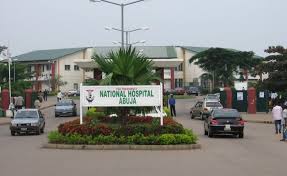Why Poor Treatment Of Malaria May Cause Kidney Damage – Experts

He stated that this has a huge implication on public health, the nation’s development and drug development, The Courage.
The doctor said, “Refusal to complete anti-malaria treatment because of immediate relief of the symptoms, abandoning the treatment despite not feeling well after taking the medication and the lack of proper education and discussion on the importance of dosing and treatment were some factors responsible for incomplete malaria treatment.”
He noted that if the trend of incomplete and poor malaria treatment continued, it would lead to an increase in anti-malarial resistance and multidrug-resistant malaria cases.
“Resistant malaria would damage the kidneys, affect the economy, create sickly people and lead to more children deaths. So we must understand the ramifications and consequences of these.
“One of the organs at risk of poorly treated malaria are the kidneys because malaria interferes with the renal function at the level of the nephrons. Poorly treated malaria can also damage the spleen because it tries to clear the red blood with the malaria parasite from the system, it can become enlarged and malfunction.
“The liver is also at risk because those malaria parasites stay in the liver and they are released into the bloodstream at a steady rate. It can also affect the cognitive function and the brain system. It is worse in children, pregnant women and those with sickle cell diseases,” the physician explained.
He urged individuals who missed their next anti-malaria dosage to ensure that they do not take an overdose of the drug, advising them to speak to their doctor on the next step.
The doctor sternly warned that overdosage could worsen the side effects and cause organ damage.
The public health expert further stated that the current anti-malaria medicines should not be abused because there was reduced research into developing new anti-malaria medicines.
He urged health workers to ensure they clearly explain the drug use instructions to patients.
On his part, a community pharmacist, Adewale Oladigbolu, mentioned that the lack of compliance with the instructions on drug usage from the pharmacists was a factor responsible for poorly treated malaria.
He added that once the malaria parasite becomes resistant to a particular drug, even if another person infected with that resistant strain completes the full dosage, they will not experience relief, as malaria will persist in their system.
Olagigbolu, who is the National President of the ACPN, said, “The second thing that can bring about resistance and incomplete treatment is compliance to instructions from the pharmacist on how to take the drug.
“Mainly, the most popular drugs for malaria in this country now are artemether-lumefantrine, which is taken at zero hours, eight hours, and 24 hours, like that. So, if you don’t take that instruction of taking the second dose after eight hours, then there may be some challenges. Challenges in the fact that the blood level of that medicine will not reach its peak at a good time, and will not be able to kill the parasite effectively.”
He added that bad drug storage could affect the quality of the medicines and cause resistance and incomplete treatment.
The ACPN president advised Nigerians to get their drugs from registered pharmacies, listen to the instructions on how to use each drug and ensure they complete the dosage.
Oladigbolu further noted that the use of alarms and reminders could be used as a reminder of the next dosage.
The community pharmacist stated that diagnostic testing should be conducted to confirm malaria before antimalarial medication is prescribed.
“So, once they are properly treated, if you have been taking a particular drug and it’s not working for you, go to your community pharmacist who will take detailed information about your condition, and if necessary, refer you to a lab, and then gradually move you away from the medicine you have been taking before. Other medicines work for malaria aside from the popular artemether and lumefantrine,” he said.
The ACPN president pleaded with Nigerians not to abuse any anti-malaria medicines, stating that research into new medications for malaria has slowed down over the years. He warned that the abuse of the medicines “means that people will die of malaria, and that will be a needless death.”




